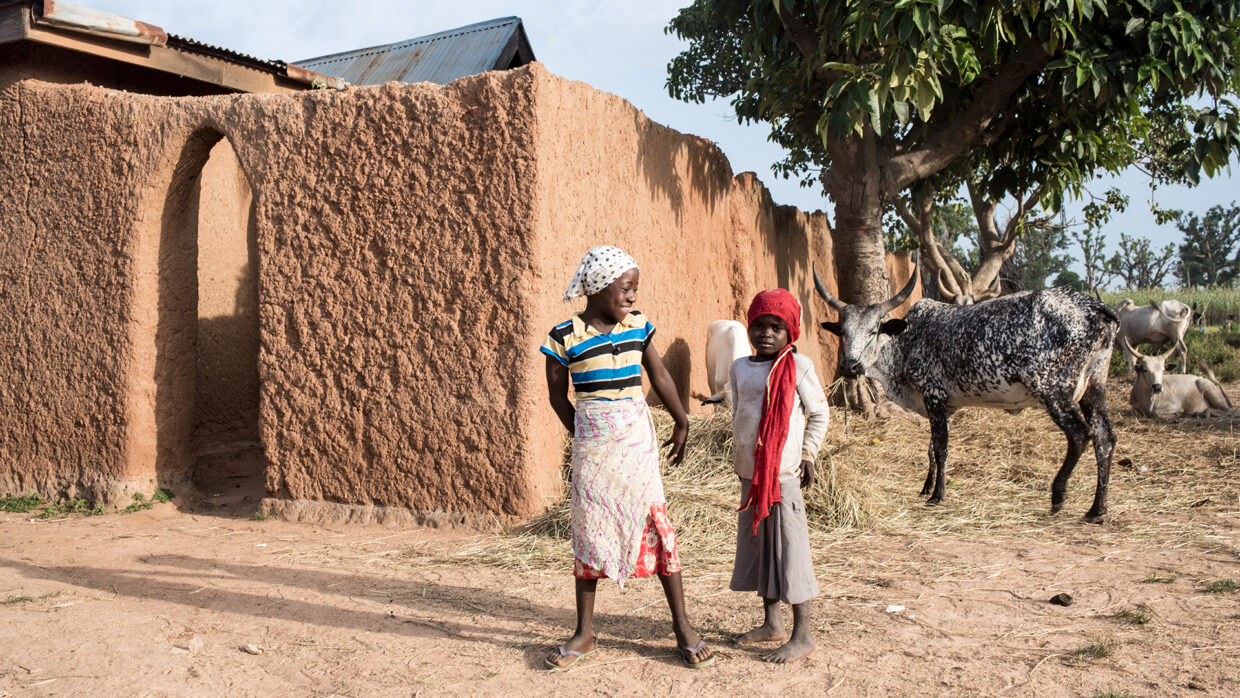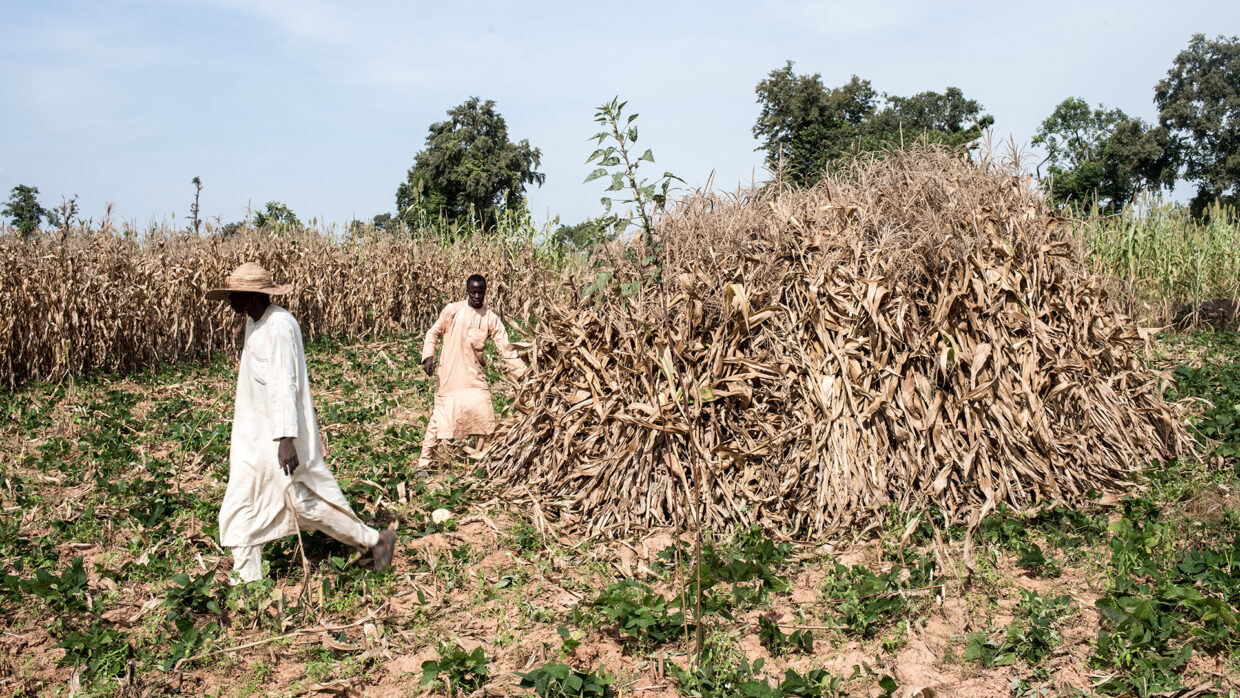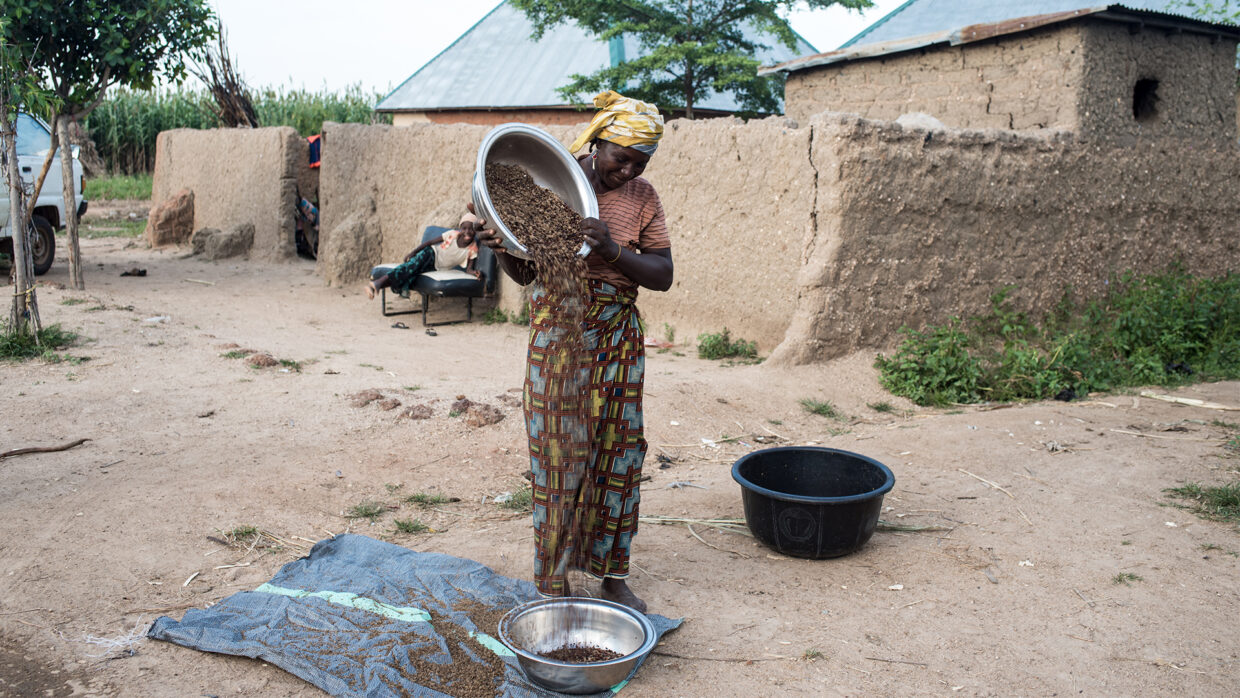At the heart of the global food insecurity caused by COVID-19 are hundreds of millions of smallholder farmers in Africa and Asia. These farmers typically work with their families to grow crops on land no more than two hectares in size.
In normal times, these farmers grow upward of 80 percent of food consumed in these regions. In tough times like now, they struggle to feed themselves and their loved ones, much less get their crops to market. Because of the vital importance and vulnerability of the world’s smallholder farmers, John Deere invests in programs like Rayuwa in northern Nigeria.
COVID-19 is expected to worsen the overall prospects for food security and nutrition. Pockets of food insecurity may appear in countries and population groups that were not traditionally affected. A preliminary assessment suggests the pandemic may add between 83 and 132 million people to the total number of undernourished in the world in 2020.
Source: FAO, IFAD, UNICEF, WFP and WHO. 2020. The State of Food Security and Nutrition in the World 2020.
Rayuwa means “life” and “livelihood” in the Hausa language. Working with PYXERA Global, John Deere identified Nigeria as a place where we could make an immediate and sustained difference on the livelihoods of smallholder farmers and those they sustain.
Today, Nigeria is home to more than 200 million people. Nigeria is also one of the youngest countries in the world with more than 40 percent of its population under 15 years of age. In 30 years, Nigeria is projected to double in size. In order for Nigeria to grow, so must its farmers.
Much like John Deere builds a stack of technologies to unlock value for our customers, we also build a stack of programs to enrich the lives of those we serve through our citizenship. In Rayuwa, we’ve stacked agronomic training, youth education, and volunteerism. Together, these programs create the opportunity for more profitable farmers in the near term, more prosperous farm families in the near term, and a greater connection to our higher purpose for our employees.
FARMING AS A PATH TO PROSPERITY
Rayuwa’s first objective is to increase farmer profitability. Working daily with 2,500 farmers in 11 villages, Rayuwa staff established test plots to inspire and engage them. Rayuwa staff shared new agricultural practices, including planting techniques, fertilization, and crop protection.
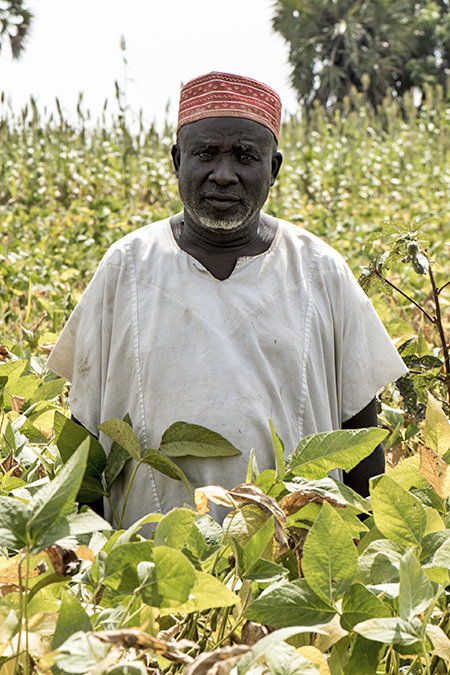
Mallam Surajo
One of the tests also involved hybrid seeds, which improved yields in some cases by nearly 200 percent.For the 2020 planting season, Rayuwa helped farmers like Mallam Surajo access credit to purchase these kinds of improved inputs.
I am now able to cultivate more of my land and get very good crop yields because of the work of the Rayuwa team.” Before last year’s planting in 2019, they trained us in better ways of farming including how to plant seeds and how to apply fertilizers, and at harvest we saw how well these new practices improved yield.
Mallam Surajo
“Even though things became so difficult during the pandemic, Rayuwa helped us arrange purchases of quality fertilizers, improved seeds, and agrochemicals on credit with a bank guarantee,” says Surajo. Despite surging extreme poverty throughout much of Nigeria, Rayuwa’s farmers increased their total earnings by nearly $1.3 million in 2020.
SECURING FARMING’S FUTURE
Rayuwa’s second objective is to improve the educational attainment of 4,000 village youth. Access to high-quality education inspires profitable farmers to send their children to school. Empowered by a good education, these children can become even better farmers when they grow up and enter the family business.
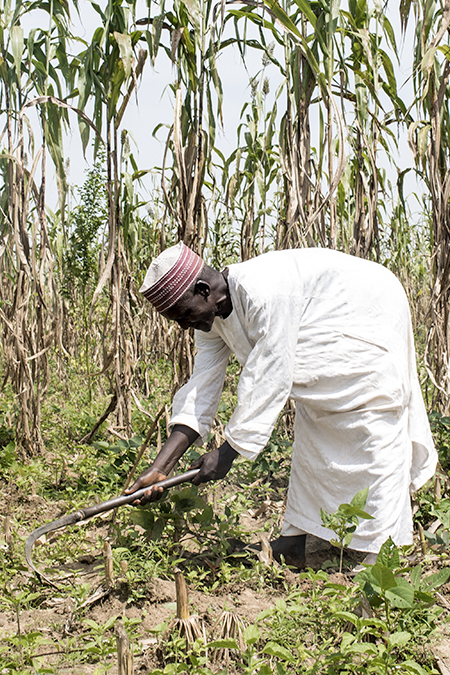
Ibrahim Isiyaku
As a result of Rayuwa’s innovative education programs, including a home-based model developed in the midst of COVID-19, youth earning top scores in letter and number recognition increased by 60 percent and 77 percent respectively, with a projected increase in lifetime earnings through better education topping $1.9 million.
Rayuwa has brought a lot of improvement in my children’s education. Our teachers have benefited from the Rayuwa team and it reflects in what we now see in our children. Reading has improved so much, and they are also learning to speak and read simple English.
Ibrahim Isiyaku
Teaching even continued during the pandemic. The Rayuwa team provided Community Education Workers in the village with mobile phones so they could remain in contact with the Rayuwa education experts. This enabled them to continue providing limited home-based lessons to village children. “COVID-19 has had a lot of negative impacts, but here we count our blessings,” notes Ibrahim. “We are grateful that none of Rayuwa’s support to our farms and our children fully stopped during the lockdown.
MAKING IT PERSONAL
Rayuwa’s third objective is to engage John Deere volunteers. In October 2019, a group of John Deere volunteers traveled to Rayuwa to help in the program’s launch.
The impact of this experience for John Deere’s volunteers is best summed up by Jean Elloh, Divisional Sales Manager: “For me, it was a privilege to have been part of the Rayuwa volunteer experience.
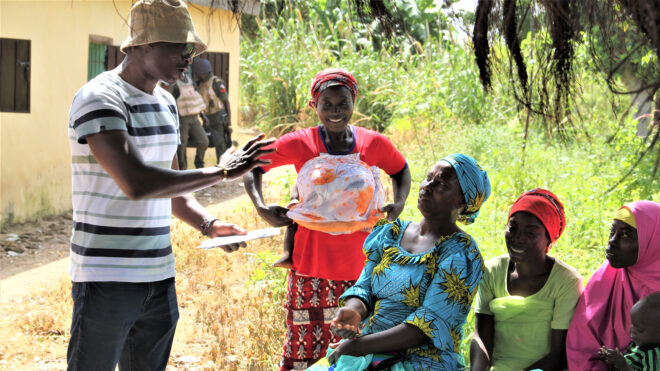
Jean Elloh, Divisional Sales Manager (left) says: “For me, it was a privilege to have been part of the Rayuwa volunteer experience.”
Beyond contributing toward a project that aims to transform lives, from a personal standpoint, the experience reminded me of what I will call ‘my unique journey.’ Hearing the plights of the families in communities we visited took me back into time. I could identify with all the challenges the communities recounted.
The volunteer program afforded me the opportunity to contribute to improving livelihoods, to connect with nature through maize and rice harvesting experiences, and to bond with fellow volunteers, including the on-ground Rayuwa project team as well as the PYXERA Global team. It’s an awesome feeling to belong to a company that is committed to farmers regardless of their backgrounds.”


